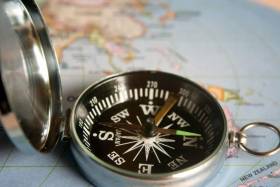Displaying items by tag: Seamanship
Essential Navigation & Seamanship Course At Howth Yacht Club
#HowToSail - Next month Howth Yacht Club will host a two-day course on essential navigation and seamanship for cruising in coastal waters.
Run on Saturday 13 and Sunday 14 October, the course is touted as the ideal introduction to the essential knowledge required to plan and safely undertake short cruising passages in coastal waters.
The "concise yet highly informative" course is geared towards skippers and crew who are new to cruising, but is equally suitable for sailing yachts, motorboats, RIBs, divers and sea anglers.
The course will include:
- Charts and chart work
- Safety
- Navigation buoys and lights
- ‘Rules of the Road’
- Tides
- Weather
- Passage planning and pilotage
- Modern methods of electronic navigation
Presented by David Jerrard of Sea-Craft, the course runs from 9.30am to 5.30pm each day in HYC. The course fee is €120 which includes the full course pack and documentation.
The course is open to both club members and non-members so feel free to bring along a friend or colleague.
For more details and booking information, contact [email protected] or phone Sea-Craft at 01 286 3362 anytime.





























































